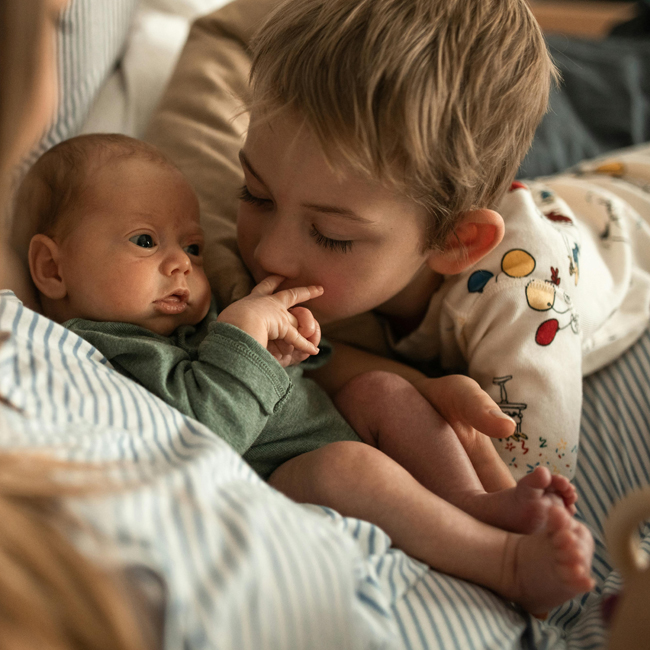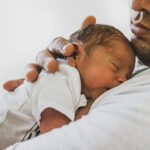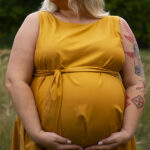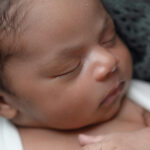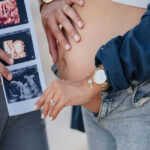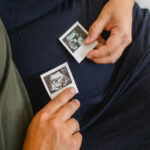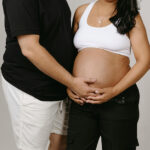A Rare Case of Live Birth Through In Vitro Fertilization in a 46-Year-Old Woman Using Her Autologous Oocyte”
Patient Overview:
In 2022, Just about to turn 46-year-old woman came to our fertility canter seeking help with secondary infertility. She had previously conceived through IVF at age 43, delivering her first child successfully, and was now eager to expand her family. Her medical history revealed regular menstrual cycles (28 days) and no underlying health conditions or significant family medical history. At the time of her consultation, her BMI was 22.91 kg/m², and her Antral Follicle Count (AFC) was 5, indicating a somewhat diminished ovarian reserve due to her age.
Initial Evaluation and Counselling:
Given her age and lower ovarian reserve, she underwent preconception counselling with a high-risk obstetrician. This was essential to ensure that she understood the increased risks associated with pregnancy at 45 and to assess her overall health for carrying a pregnancy. After thorough evaluation, she was deemed fit to proceed with fertility treatment.
IVF Treatment Plan (April 2022):
- Stimulation Protocol:
The patient was started on a short flare protocol. From day 2 of her menstrual cycle, she used a nasal spray of GnRH agonist (200 mcg twice daily). Starting on day 3, she began daily injections of rFSH plus rLH at 450 IU to stimulate egg development. - Monitoring and Trigger:
Follicle development was monitored by regular ultrasounds. Once three follicles reached 17 mm or larger, hCG 250 mcg was administered to trigger ovulation. - Egg Retrieval:
Approximately 37 hours after the hCG trigger, the patient underwent egg retrieval. Using a needle guided by ultrasound, six oocytes were retrieved from her ovaries.
Fertilization and Embryo Development:
- Of the six oocytes retrieved, four were mature and suitable for fertilization. Each mature egg was fertilized using a technique called Intracytoplasmic Sperm Injection (ICSI), where a single sperm is injected directly into the egg.
- Three of the eggs fertilized normally, while one embryo arrested early in development.
- By day 5 post-fertilization, two blastocyst-stage embryos had formed. The first embryo, graded 4AA, was transferred fresh into the patient’s uterus, while the second embryo, graded 4AB, was frozen for future use.
Embryo Transfer and Luteal Support:
- The fresh blastocyst (4AA) was transferred into the uterus under abdominal ultrasound guidance using a specialized transfer catheter and Embryo Glue, a substance that enhances implantation chances.
- Following the transfer, luteal phase support was provided using progesterone gel (Crinone 90 mg), starting two days after the egg retrieval.
Positive Outcome:
- Just nine days after the embryo transfer, the patient’s β-hCG blood test came back positive at 252 mIU/mL, confirming a pregnancy.
- At six weeks and four days of pregnancy, a transvaginal ultrasound showed a viable pregnancy with a single gestational sac and fetal heartbeat.
Birth:
In January 2023, at 39 weeks and 4 days of gestation, the patient gave birth to a healthy baby boy weighing 3220 g via caesarean section due to failure to progress during labor. Both mother and baby were healthy, and the newborn showed no abnormalities.
Patient’s Journey of Hope: This case highlights the rare and remarkable event of a woman successfully conceiving and delivering her own biological child at the age of 46. There have only been five such cases around the world reported so far, making it an unusual occurrence. While it shows that pregnancy is possible at this age, it also emphasizes the importance of careful medical evaluation and support for both the mother and baby due to the risks associated with advanced maternal age.
For women around 45 and older, the chance of having a live birth using their own eggs is extremely low, just 0.3%. It’s important to share this information realistically to avoid giving false hope to women in this age group who are considering IVF. In most cases, egg donation from a younger, fertile woman is the best option, unless the woman had frozen her own eggs at a younger age.

